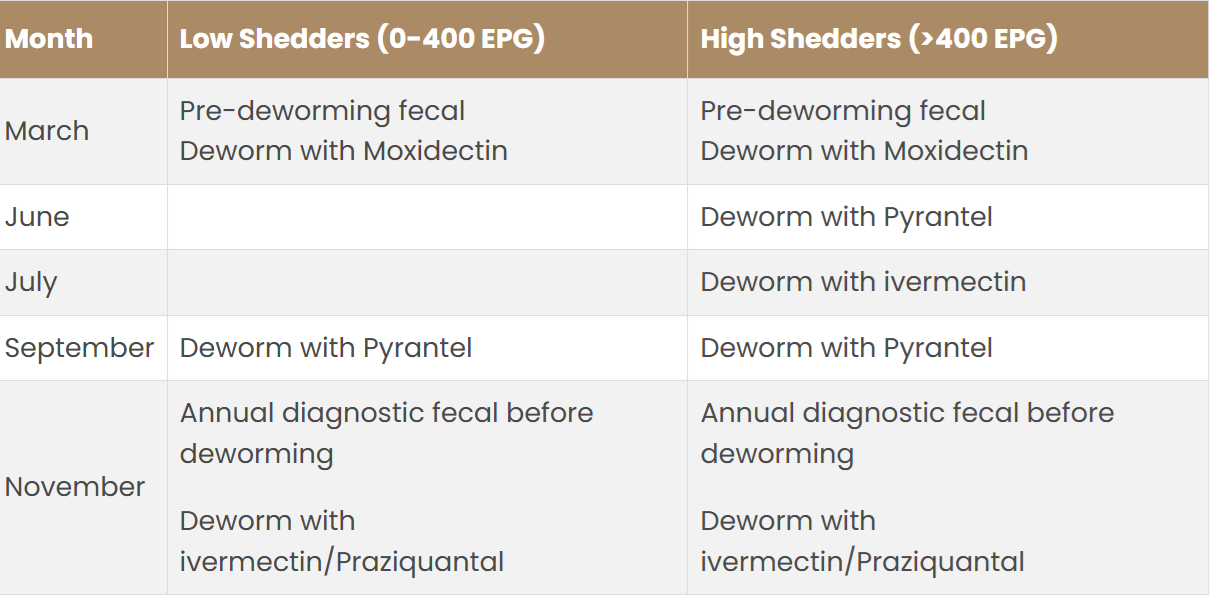Hi all,
I have a (I think) really dumb question about deworming, and would like opinions before I have to bother my vet, as he is obviously busy.
I have my senior horse and then 2 months ago I bought a new mare.
My senior has a lot of health issues and has been a high shedder most years.
This is my vet’s deworming protocol for high and low shedders:
Horse 1 - (My new mare) Pulled a fecal once I bought her and she was a high shedder. I dewormed her and per my vet’s recommendations, pulled another fecal in 30 days for a recheck. That recheck was just last week and she came back at 0 egg count with a recommendation for nothing further needed to be done. HOWEVER, since the very first fecal in March had her as a high shedder, I was planning on deworming on June 1 per the chart above. So I’m confused on what to do - nothing else per the recheck or deworm again since she was a high shedder the first time in March? I know deworming too much is obviously not good.
Horse 2 - (My senior) Similiar to the situation above, I pulled her fecal in March, and she came back as a high shedder. I wormed her per vet recommendation and vet recommended returning in 30 days with another fecal. I had her fecal rechecked last week and she came back still high so I need to do a powerpac deworming (5 days in a row). Similar to my questions above, after that deworming is done, I’m assuming that satisfies my June 1 deworming of her as a high shedder?
Again, I know these are probably really stupid questions, but I would rather ask this community than bother my busy vet. I think I know the answers but would rather double check and be safe. Thanks



